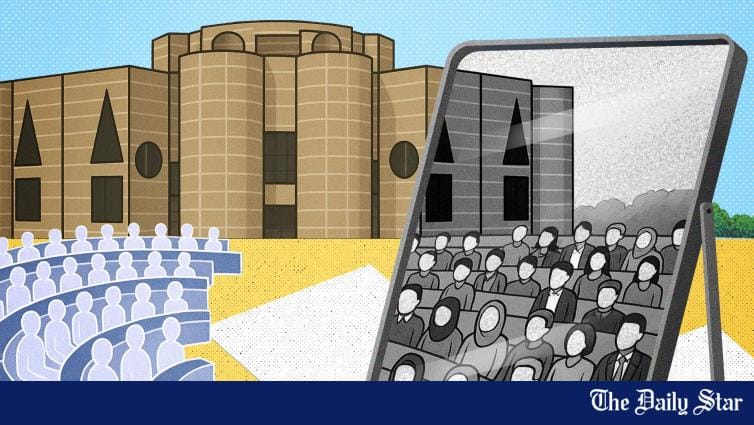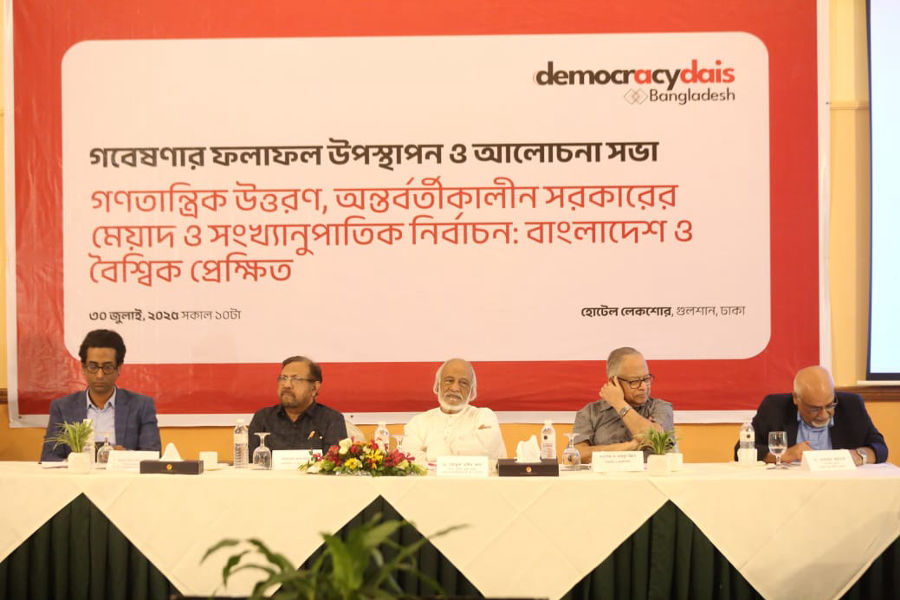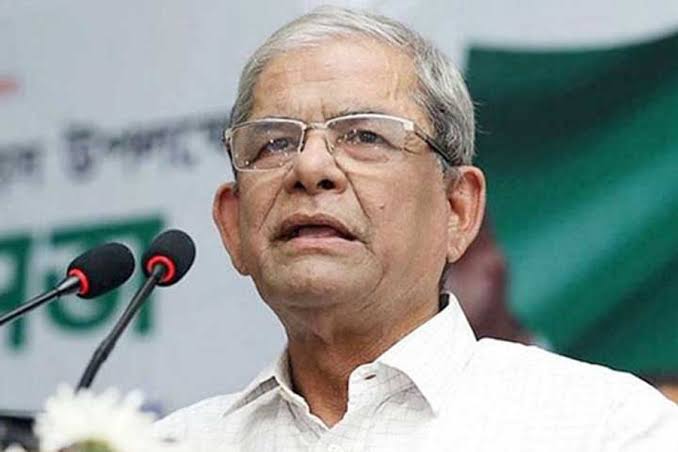Saif
Senior Member
- Messages
- 17,462
- Likes
- 8,403
- Nation

- Residence

- Axis Group

Date of Event:
Jul 4, 2025
‘PR system a threat to democracy’ - Says Rizvi
Rizvi criticizes PR system in elections
BNP Senior Joint Secretary General Ruhul Kabir Rizvi yesterday said local leadership will not develop if elections are held under the Proportional Representation (PR) system.
"If elections are held under the PR system, the preferred candidate in the parliamentary constituency will not be able to become an MP. People will not be able to vote for their preferred candidate," he said at a programme in Rangpur.
Rizvi said under the PR system, the party, not the people, will choose MPs, which will pave the way for authoritarianism.
"Today, various things are being brought forward -- proportional voting. Why proportional voting? This will block the path to developing local leadership. If someone becomes a leader by staying in an area for a long time and maintaining contact with the people, even they could be excluded based on party decisions. This will lead further toward authoritarian rule," he said.
Meanwhile, Australian High Commissioner to Bangladesh Susan Ryle has said her country is keen to support Bangladesh in holding a free and fair national election.
"There has been discussion on the election in Bangladesh with importance. Australia is providing significant assistance in this regard, particularly to the Election Commission, and they are continuing with that support," said BNP Standing Committee member Amir Khosru Mahmud Chowdhury.
Khosru made the remarks while briefing reporters after Australian High Commissioner Susan Ryle paid a courtesy call on BNP Secretary General Mirza Fakhrul Islam Alamgir.
Responding to a journalist's question, the BNP leader said voter turnout in the upcoming national polls will be very good, and that people will go to polling centres with great enthusiasm and interest.
"Male and female voters of all ages will participate, and there will be a good election. A government will be elected via a neutral and acceptable election. This will help advance the democratic transition," he said.
Rizvi criticizes PR system in elections
BNP Senior Joint Secretary General Ruhul Kabir Rizvi yesterday said local leadership will not develop if elections are held under the Proportional Representation (PR) system.
"If elections are held under the PR system, the preferred candidate in the parliamentary constituency will not be able to become an MP. People will not be able to vote for their preferred candidate," he said at a programme in Rangpur.
Rizvi said under the PR system, the party, not the people, will choose MPs, which will pave the way for authoritarianism.
"Today, various things are being brought forward -- proportional voting. Why proportional voting? This will block the path to developing local leadership. If someone becomes a leader by staying in an area for a long time and maintaining contact with the people, even they could be excluded based on party decisions. This will lead further toward authoritarian rule," he said.
Meanwhile, Australian High Commissioner to Bangladesh Susan Ryle has said her country is keen to support Bangladesh in holding a free and fair national election.
"There has been discussion on the election in Bangladesh with importance. Australia is providing significant assistance in this regard, particularly to the Election Commission, and they are continuing with that support," said BNP Standing Committee member Amir Khosru Mahmud Chowdhury.
Khosru made the remarks while briefing reporters after Australian High Commissioner Susan Ryle paid a courtesy call on BNP Secretary General Mirza Fakhrul Islam Alamgir.
Responding to a journalist's question, the BNP leader said voter turnout in the upcoming national polls will be very good, and that people will go to polling centres with great enthusiasm and interest.
"Male and female voters of all ages will participate, and there will be a good election. A government will be elected via a neutral and acceptable election. This will help advance the democratic transition," he said.








